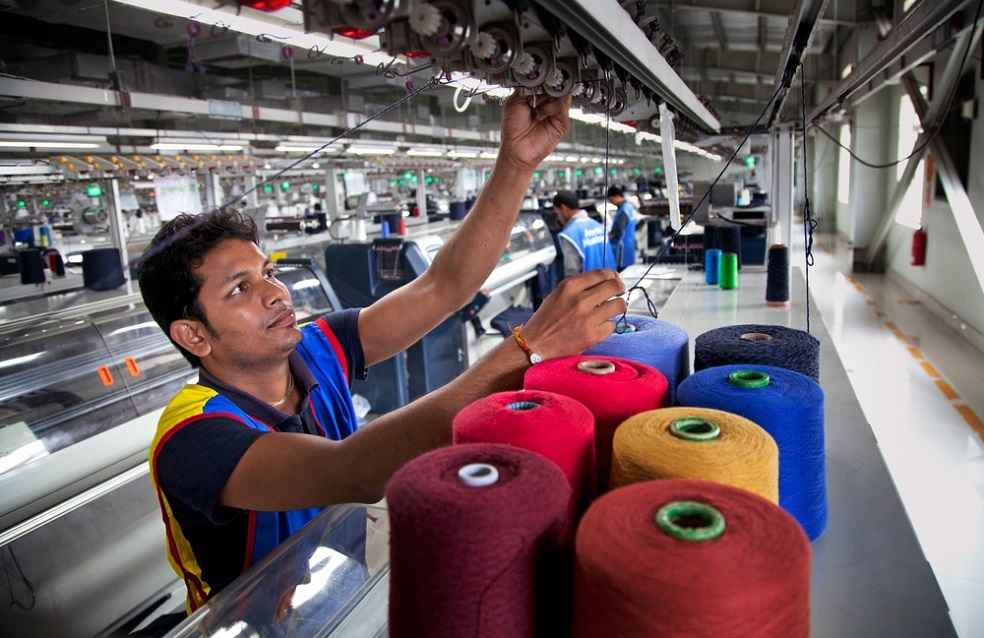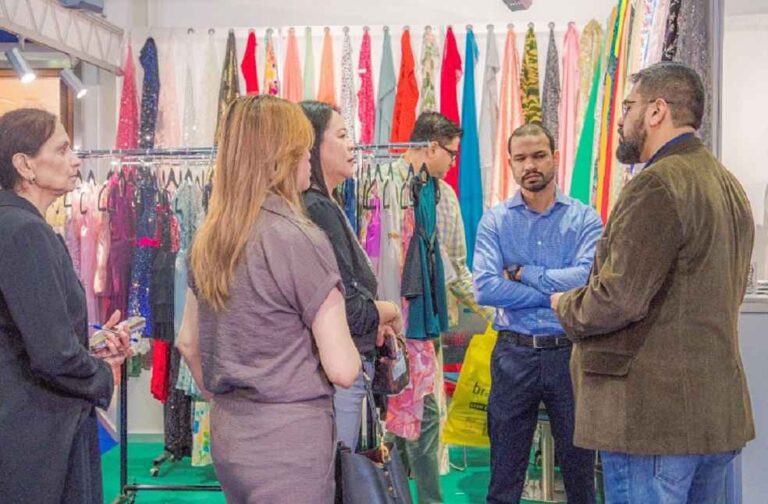Recent political unrest in Bangladesh, resulting in the ousting of Sheikh Hasina’s government during the quota reform movement, has not deterred global fashion brands from deepening their sourcing ties with the country. On the contrary, Bangladesh’s apparel industry is witnessing a surge in orders from Europe, America, and East Asia, driven by exporters’ relentless efforts to maintain strong communication with international clients.
With Nobel laureate Professor Muhammad Yunus at the helm of the interim government, Bangladesh’s global brand image has received a significant boost. This leadership transition has instilled confidence among major buyers, leading to an increase in orders. Prominent US brands such as US Polo, Gap, and Express have expanded their sourcing from Bangladesh, reinforcing their dedication to the country’s apparel sector.

Faruque Hassan, Managing Director of Giant Group, reported an unexpected hike in orders from US Polo, the largest buyer for his company, now accounting for 40% of their capacity. Hassan credits this success to major moves during the internet blackout imposed by the previous regime. By dispatching top officials to the US Polo office, he effectively reassured the buyer about the situation in Bangladesh, securing additional orders.
Shovon Islam, Managing Director of Sparrow Group, echoed this sentiment, noting increased orders from US Polo, Gap, and Express. Meanwhile, Masco Group’s Senior Manager, Md Sharafat Hussain Sohail, highlighted the interest of Korean brand BYC, which is considering Bangladesh as a new sourcing destination.
Global brands H&M, Inditex, and M&S have demonstrated a remarkable level of support for Bangladeshi suppliers by refraining from imposing penalties for shipment delays caused by recent unrest. H&M, in particular, has assured suppliers that there will be no demand for discounts due to delays, maintaining their steady flow of orders.

Challenges remain, with some industry leaders expressing concern over the ongoing political instability, electricity and gas shortages, and container congestion at ports. Pacific Jeans Group’s leadership warned that these issues might prompt a shift in future orders to more stable regions.
Additionally, the exposure of financial irregularities tied to the ousted regime has resulted in some companies, including Beximco and NASA, losing orders. Hameem Group’s Managing Director, AK Azad, disclosed that approximately 20% of their orders have already moved to other competitive countries due to the deteriorating law and order situation.
POLICY & LAW | ARIA Demands Lower Rice Export Prices to Boost India’s Global Edge



